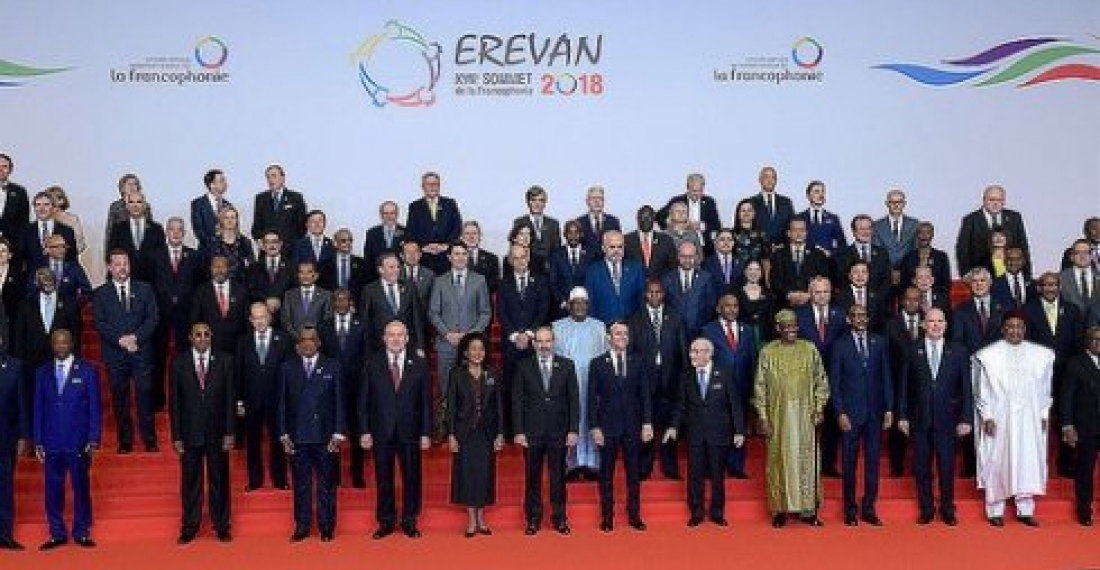The summit of the heads of state and government of La Francophonie, in the Armenian capital Yerevan, ended on Friday with the adoption of the Yerevan declaration and the election of a new Secretary-General of the organisation. Rwanda's foreign minister Louis Mushikiwabo was elected to the position.
The summit gathered an unprecedented number of heads of state and government in the Armenian capital and was a major logistical challenge to the Armenian government. Prime Minister Nikol Pashinyan. thanked the organizers of the 17th summit of Francophonie for holding it on a high level in Yerevan. ARMENPRESS reports Pashinyan said on a Facebook live broadcast that the results of the summit were positive for Armenia. "We can say that the event that was the largest in our country since independence undoubtedly raised the international reputation of our country", he said, emphasizing that it was also positive for the reputation of Francophonie.
PM Pashinyan highly appreciated the role of former foreign minister of Armenia Edward Nalbandian in the organization of the summit in Armenia. "The Police, National Security Service, the entire state administration and the volunteers did a great job during the organization of the summit", he said.
source: commonspace.eu
photo: A family photo of the Summit of La Francophonie held in Yerevan on 11-12 October 2018 (picture courtesy of francophonie.org)







